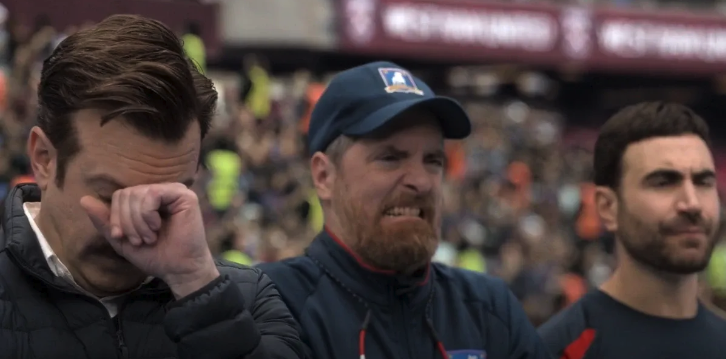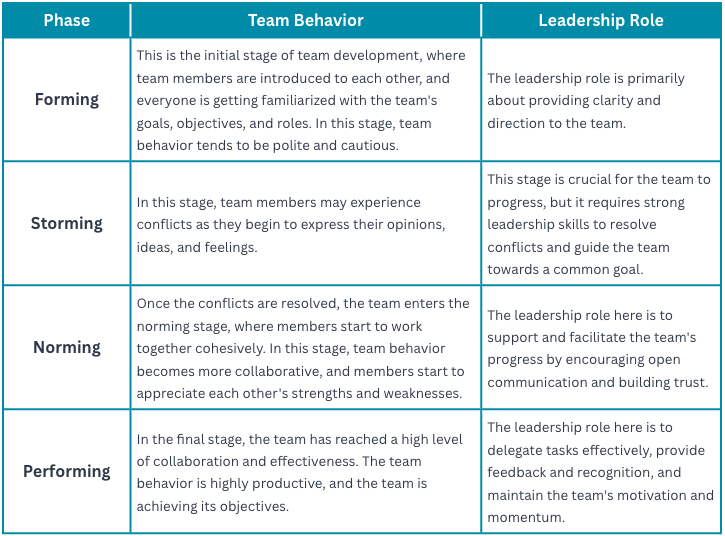Yes! I am going to talk about teamwork in the TV show Ted Lasso, but let’s start with some housekeeping:
- You don’t need to have seen Ted Lasso to understand and enjoy this text.
- I won’t get into Ted Lasso’s plot details as my references will be general. However, if you are very, exceptionally super spoiler-phobic (I respect you), it may be appropriate that you come back after you watch the 9th episode of season 3 (aka the one that is pretty good after a kind of irregular season)
- I am NOT going to say soccer. I’ll say football. I am a Spaniard. Every time I say soccer, I die a little.
- I will suggest at some point that you “be Ted Lasso.” While that is true, please, pretty please, if you join a team, learn the rules ASAP. Don’t be that Ted Lasso.
Ok, let’s go now! What we see in Ted Lasso is a team that is not really a team but a group of people who barely know (or stand) each other. When they start playing football together, things get tough, strong personalities show up, and conflicts arise. Drama, chaos, and destruction. Well, not that bad, but a lot of confusion and lost games. Then Ted Lasso does his thing, and the team starts finding ways to work together. They accept each other’s differences, and they start building meaningful relationships. The good news doesn’t stop here! After a bit (one season, give or take, lol), we have a team that helps and supports each other. Collaboration is the norm, and when conflict arises, it is solved within the team. The players assume more responsibilities, and performance takes a jump. Boom!

If you think about it, most movies or TV shows that feature a team follow the same pattern. Some that come to mind are The Bear, Willow, Pitch Perfect, The Avengers… I am sure you are already naming a bunch in your head. Dang, I may dedicate more posts to this in the future!
Well, anyway, my dear friend, if you are going to take one single thing from this text, let it be the fact that this pattern is not (only) a narrative tool to make stories exciting and fulfilling. This pattern is real, and it applies to any team. When managing a project, team performance doesn’t follow a linear pattern. The team will form, storm, norm, and then perform. This is known as the Tuckman model, and I’ll get to it in a bit, but first, I need to insist on this because I struggled with it early in my career: it is expected that the team doesn’t perform at a high level from the beginning. Don’t get frustrated. Frustration is your enemy. Keep building trust and guiding the team toward the vision. Things will improve!

Back to Tuckman. He was a Psychological Researcher that published the model in 1965 - I asked ChatGPT to “summarize the Tuckman model for team development mentioning the team behavior and leadership role in each phase.” The table below shows the result. Please pay special attention to the leadership role, as things won’t improve just because. The team needs guidance. Be the guidance, be the light, be Ted Lasso. Oh, one more thing: even if you are performing, if a new member joins, or the vision changes, you may find yourself back into norming or even storming. Not a drama! This is normal! Now you know what to expect! Things will be bumpy before they get better! Ok, now, here is the promised table:

In 1977, Tuckman partnered with Mary Ann Jensen, and they added a fifth stage: adjourning (some call it mourning). This is when the team splits up, either because the project is over or because team members leave. You can’t maintain the team in a performing state forever. When the team super performs and members grow, they will eventually go to try new things. Don’t be selfish, dude! Celebrate others’ accomplishments! Team members moving on and into great new endeavors is expected and also excellent. Some call this phase mourning because it is the time to acknowledge that something valuable was lost, but you can celebrate what you had!
Oh, dear, it does feel that Ted Lasso is reaching that phase, doesn’t it? Jason Sudeikis said he feels the story is ending, and I don’t know if it is because I am aware of it or because the team is clearly in its performing phase that I am getting myself ready for this incredible journey to conclude. Sigh. It was a great ride while it lasted.
So, my dear friend, remember: when things are not stellar (and most of the time, they are not), identify where you are and what your team needs from you. Go, Richmond!
Do you want to receive posts like this one in your inbox every week? Subscribe to my newsletter!!